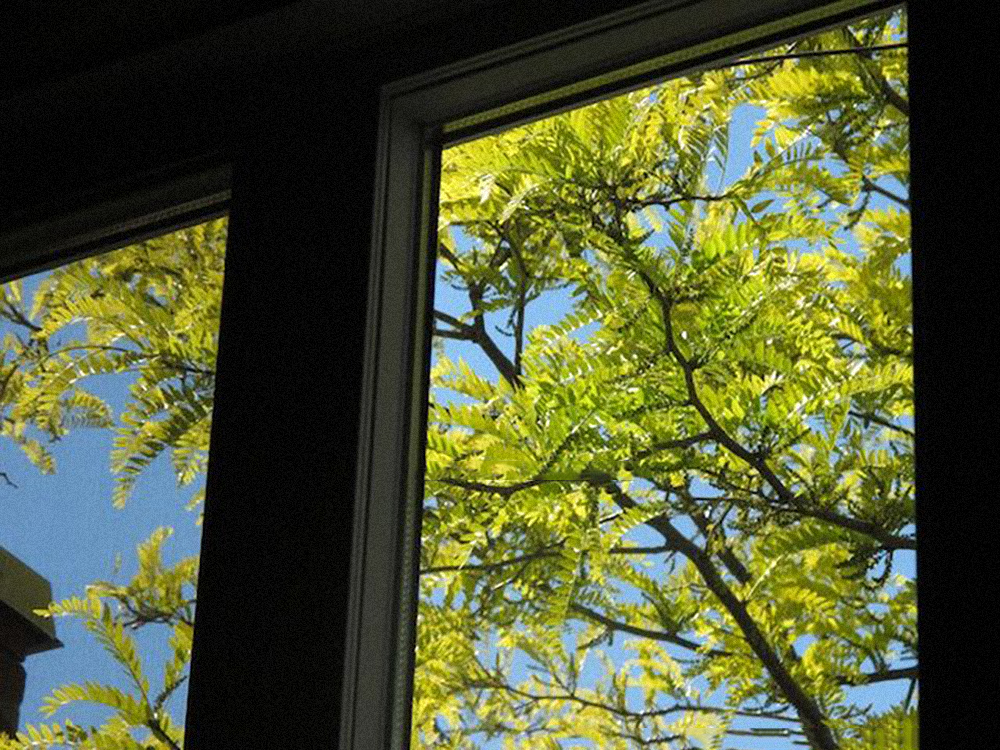
Daring high sounds
I have to constantly travel in the symmetry of the octaves during my singing lessons. After having tamed a little bit the low sounds, I the whisperer, my teacher is telling me to attack the A-flat, B-flat, B-flat, etc. He seems to know where he’s going and I’m letting myself be led frighteningly.
I discover a lot of things up there, starting with this observation of fear in front of what seems inaccessible to me. The throat stops and gets thinner. Vincent patiently encourages me not to judge what comes out. I answer him that I have the impression that I have to solicit the bottom of the "kidneys" and anchor the sternum, that it seems very physical to me, beyond the music, and he explains that there is indeed a tension that is exerted on the male singer when he sings high. You certainly shouldn’t pinch your throat; it has to do what you ask it to do and it’s capable. I can do it unless I try to propel the note using the throat which is a guaranteed disaster. The voice is there, there is screaming in the male singer’s high voice. No more, no less.
Vincent also explains that when you sing high notes, you get the impression that the tube is thin in the head and that it doesn’t necessarily sound beautiful to your own ears. Anyway, I get a little dizzy, and hot. Let the voice go! The sweetness of a song is not created by glossy softness, but rather by letting your heart and emotions flow together. It’s a bit like driving a schooner, with all sails open, putting your arms on a cross like the girl on the Titanic, wanting to be happy. Just that, wanting to be happy.
I don’t want to turn this down constantly, but it’s true that singing in a choir usually requires you to do the opposite, to blend in, to destroy your ego, to always think of others, to sing especially in a head voice and to blend in with the weakest voices. So I have the chorister’s reflex when I’m with my teacher, and the adrenaline of the soloist when I’m in a choir. On, off.
I still have a lot of bread crust to eat before I’m comfortable in these summer regions of the tenor’s voice. However, I have the feeling that I will never find my place in a choir and that I should perhaps stay with my baritone voice when I sing with a group. At least now I’m some kind of sound cement. In a higher voice, even if my voice is not of that strength that makes the spectators’ armpits soak, I still pierce right away. Vincent would tell me that it is the other singers who should follow me, not the other way around (big pause where reflection mixes with an inability to respond).
I am already told in the choir that my voice is being heard more. This intrigues the choristers because they perceive the result of my efforts. I would like so much, even if they are old, retired, young and busy, that they invest like me in this adventure.
It is indeed an investment. A private class once a week is a drain on a budget. It is a pity that our beautiful society of illiterate Quebeckers does not see the importance of investing in art, in heights, in the sublime.
Finally, at least I would have lived by shaking a little bit of the voice. I remain modest, I am still old, I will become famous with Les Mailles sanguines, and I will have acquired some letters of nobility before I die.
We can always dream since that’s what allows us to fly to the heights.

